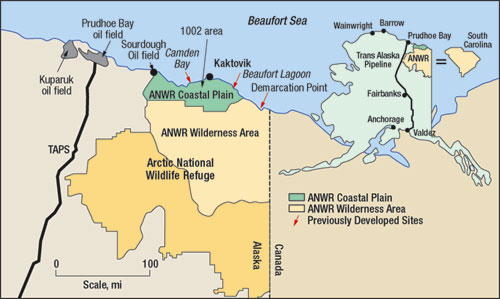International Politics
Good or bad, energy-oriented bills are multiplying
Energy legislation update. In the wake of 9-11, the global war on terror, and increased oil and gas usage world-wide, the US Congress has scurried to pass meaningful energy legislation at a pace previously unseen. The goal is to increase US oil and gas production, decrease imports and increase efficiency. But is Congress being effective? A look back at past energy bills sheds light on the present, and provides a glance into the near-future of energy legislation. Historical review. The most significant energy legislation after World War II occurred in response to the Arab Oil Embargo of 1973, when the Organization of Petroleum Exporting Countries (OPEC) halted oil supplies to the US and Europe for supporting Israel during the Yom Kippur War. OPEC drove the price of oil from $3/bbl in 1973 to $11.65/bbl in 1974. Resultant inflation and a gas shortage sent the US reeling.1 Congress scrambled from 1974 to 1978 to pass as many as eight bills to address the crisis. The most prominent were the 1975 Energy Policy and Conservation Act (EPCA), the 1977 Department of Energy Organization Act (DOEA) and the National Energy Act of 1978 (NEA).2 Collectively, these bills aimed at fixing both supply and demand problems.3 The 1975 EPCA, in particular, de-regulated longstanding government price controls on domestic oil, and forced America to adopt market conditions to secure its oil and gas.4 Other aspects of the 1974-1978 legislation included extending Daylight Savings Time; banning the sale of gasoline on Sundays; setting 55 mph as the national speed limit; establishing the Department of Energy; creating the Strategic Petroleum Reserve; and building the Trans-Alaskan pipeline to pump 2 million bopd from Alaska’s North Slope to the port of Valdez.5 One tenet of 1978’s NEA had a resoundingly negative impact – the Power Plant and Industrial Fuel Use Act of 1978. It restricted the use of natural gas to select industries, such as home heating. Said Jim Ford, vice president of Government Affairs for API, "The Fuel Use Act served as a disincentive to producing more natural gas, because if you are restricting markets, you are creating disincentives to finding and producing natural gas."6 The government repealed the act in the 1990s, which helped boost production.7 The last hurrah of energy legislation, post-1973 embargo, was the Crude Oil Windfall Profits Tax Act of 1980. It levied a sizeable profit tax on domestically produced oil in an attempt to raise $393 billion, but it only netted $80 billion.8 Said Jim Ford, "...the actual result was that it did not raise the revenues that had been projected, and basically resulted in a loss of domestic production and more reliance on oil imports." Washington ended the tax in 1988, but concepts like it would surface again, nearly two decades later.9
In all, while the 1970s-era legislation did little for production, it did encourage more efficient hydrocarbon usage. The US went from consuming 18.8 million bopd, down to 15.2 million bopd, but higher oil prices helped conservation, too.10 Production-focused legislation occurred in 1995 with the Deep Water Royalty Relief Act, led by then-Chairman of the Senate Energy and Natural Resources Committee, J. Bennett Johnston (Dem.-La.). The act encouraged energy companies to explore the deep waters of the Gulf of Mexico – which belonged to the government – by reducing the amount of royalties that they paid to Washington, if and when they struck oil or gas.11 "At the time," explained Ford, "Oil was in the $10-to-$12 range. Natural gas was below $2/Mcf. And there was a lot of information that indicated there could be significant amounts of oil and natural gas in deepwater areas of the Gulf of Mexico."12 But with prices low, companies had little incentive to spend millions of dollars to explore in more than 500 ft of water, something not done often in those days, because the technology to drill at that depth was not fully developed.13 The Royalty Relief Act provided the financial impetus to do so, and results were positive for operators. "Producers...developed the technology to explore successfully in deep waters, and produced a lot of oil and gas. And by that, I mean 400-plus percent more oil than was being produced prior to enactment of the law," said Ford.14 More than five years later, a series of events changed the oil market, as the US had known it for decades. The terror attacks on Sept. 11, 2001, resulted in a prolonged war between radical forces in the Middle East and the US and its allies, causing an elongated, 1973-style spike in energy prices. Additionally, both China and India reached modernization apexes that demanded greater volumes of oil and gas than they had previously used. These phenomena put pressure on global hydrocarbon supplies and forced up prices. In the US, the oil price reached $75/bbl and beyond, stoking inflation. To adapt to the resultant pressure on global energy supplies and prices, and their impact on the US economy, the Bush administration and Congress passed the Energy Policy Act of 2005 (EPA). In a nutshell, EPA 2005 increased flexibility in the national electricity grid and instituted government renewable fuels requirements by promoting substances, such as ethanol. It further stipulated tax and investment incentives for companies and individuals for conservation, energy efficiency, and oil and gas production.15 Some groups attacked the EPA 2005 as ineffective. Public Citizen, a consumer advocacy group, said the EPA is, "...bad policy, because it fails to decrease our dependence on foreign oil, and for its lack of mandatory improvements in automobile fuel efficiency." Public Citizen also lambasted the law’s tax subsidies for the oil, gas and nuclear industries as "unjustified," and that its utilities provisions catered to the profit-taking interests of corporations.16
Legislative officials on Capitol Hill offered cooler analyses and said the bill was good for "stationary and mobile" aspects of the energy sector, meaning electricity and automobiles, but not for oil and gas production. They said that the debate surrounding drilling on the outer continental shelf (OCS) and the Arctic National Wildlife Refuge (ANWR) in Alaska was just too intense, and that Congress would have attend to these issues later.17 CURRENT, SPECIFIC LEGISLATION Since passing the EPA 2005, there has been a whirlwind of energy-focused legislative activity. Combined, the calendars of both the House and Senate Committees on Energy and Natural Resources list at least 18 energy-related bills for consideration in 2006. Some have died in committee, and others are pending approval by one or both houses of Congress.18 ANWR. The current debate includes the highly controversial potential for drilling on 1.5 million acres of the ANWR. On May 25, the US House voted 225 to 201 for the 12th time in history to allow E&P work in ANWR. At press time, the bill was headed for the Senate.19 The US Geological Survey estimates that ANWR holds as many as 10 billion bbls of oil.20 Proponents maintain that ANWR will result in 1 million bopd of domestic output, which will help curb oil imports from touchy places like the Middle East and Venezuela. Opponents cite immeasurable environmental damage to ANWR’s wildlife, and assert that it would take at least five years before ANWR would actually produce oil.21 Democratic filibusters have killed the bill in the past – along with a 1995 veto by then-President Bill Clinton – and it is not expected to pass in the near future. Of the fracas, Jim Ford said, "It is really a shame, because ANWR contains potentially vast supplies of oil and gas that could contribute significantly to meeting US energy needs."22 He added, "...when Hurricanes Katrina and Rita hit in the Gulf of Mexico last year, it took about a million barrels a day of production off-line. And you saw the impact on prices. If President Clinton had signed the ANWR bill into law, and had ANWR been developed along a timeline that seems realistic, given the projections of how much oil could be found there, we’d have had an additional million barrels a day."23 OCS. Legislation on the OCS is also in play. On June 29, the House passed the Deep Ocean Energy Resources Act (DOER) by a 232-187 vote. The bill then headed for debate in the Senate. Sponsored by Reps. John Peterson (Rep.-Pa.), Neil Abercrombie (Dem.-Hi.), Bobby Jindal (Rep.-La.), and Charlie Melancon (Dem.-La.), DOER lifts a 25-year-old, nationwide OCS drilling ban. The bill allows gas exploration and production 50 mi offshore, and oil exploration and production 100 mi offshore. At present, offshore drilling is only allowed off the coasts of Alaska, Alabama, Louisiana, Mississippi and Texas. House Resources Committee Chairman Richard Pombo (Rep. – Calf.) co-authored the bill.24 Individual states would have the power to cancel drilling off their coasts within certain time limits if they so desired. The Congressional Budget Office estimates that, if passed by the Senate, DOER could generate $900 million in federal funds from 2007 to 2016, and states are also expected to share handsomely from royalties.25 Like ANWR, DOER has its controversies. The House version insists that energy companies currently leasing drilling blocks in federal waters must renegotiate their contracts with the government, to increase Washington’s share of revenue. If they don’t, Congress will force them to pay a $9 "fee" for each barrel of oil, and $1.25 for each Mcf of natural gas. Additionally, the Senate’s version includes opening up to drilling a 3-million-acre area of federal water known as Lease Sale 181 in the eastern Gulf of Mexico, some of which is well within the 50-mi limit.26 Those against near-shore drilling will contest this vehemently. In the House, Rep. Alcee Hastings (Dem.-Fla.) and Democratic leader Nanci Pelosi (D-Calf.) have both decried the bill as, "...bad for the environment, bad for tourism..." and "fiscally irresponsible."27 Bill Wicker, spokesperson for the Senate Energy and Natural Resources Committee, said the House version of the DOER bill was not bi-partisan, and that any energy legislation should be, so that it can get passed. The indication is that OCS legislation might not happen in 2006, casting doubt on 2007, as well. "The House version is scary," he said. "It contains controversial provisions that put a huge hole in the budget, and it diverts hundreds of billions of dollars from the federal budget, something the President is against, too."28 Future energy legislation. As the Senate prepares for action on both OCS and ANWR, some on Capital Hill are proposing a resurrection of the 1980 Windfall Profits Tax. Proponents, such as Senator Bryon Dorgan (D-N.D.), say it’s not fair that energy firms score record profits, while consumers are paying record-high prices at the pump. He also alleges price gouging as a motivation for the tax.29 Philip Verleger, a former member of the Carter Administration and current economist at the Institute for International Economics, asserts that such a tax could net up to $4 billion annually for Washington.30 Republicans, such as Senate Majority Leader Bill Frist (Rep.-Tenn.) and House Speaker Dennis Hastert (Rep.-Ill.), have expressed interest in a windfall tax concept. However, they have not gone as far as Dorgan, who last October suggested a 50% tax on energy company profits resulting from oil sold at over $40/bbl.31 As for gouging, the Federal Trade Commission (FTC) last May issued a report that said there were neither market nor price manipulations after Hurricanes Katrina and Rita, as alleged by consumers and politicians. The report said, "In its investigation, the FTC found no instances of illegal market manipulation that led to higher prices during the relevant time periods..."32 While the FTC cited 15 instances where price gouging seemingly occurred, it also said that, "...factors, such as regional or local market trends, however, appeared to explain these firms’ prices in nearly all cases."33 Undeterred, Congressman Bart Stupak (Dem.-Mich.) said the FTC report cited, "...gouging at multiple levels throughout the supply chain," and that it, "...suggests that consumers were cheated." Stupak is proposing anti-gouging measures with his Federal Response to Energy Emergencies Act.34 Bill Wicker said of this issue, "Price gouging legislation is possible this year. Everybody is against price gouging. The problem is, there is no federal definition of it. States have their definitions, but there is no national standard, so we need a federal law to clarify what gouging is."35 Other legislative efforts take aim at energy corporations and even OPEC. On April 27, the Senate Judiciary Committee proposed the Oil and Gas Industry Antitrust Act of 2006. Senator Patrick Leahy (Dem.-Vt.), said the measure would "...keep fuel prices low by preventing companies from withholding oil and gas in an effort to raise prices," and that, "A joint federal and state task force is also created by the legislation to investigate information sharing between oil companies to determine if that practice has encouraged anti-competitive pricing."36 Regarding the bill’s OPEC angle, API’s Jim Ford explains it this way: "That bill also has a provision that would basically attempt to apply antitrust laws to OPEC, and have the US government sue OPEC for anti-competitive behavior."37 He warns that any measure that might impede oil imports, which account for 60% of total US supply, would be unsound.38 Whether or not the bill will pass both houses of Congress remains to be seen. Royalty-based bills. And then there are several royalty tax initiatives floating around. Some congressmen want back payments from the royalty relief legislation that spurred so much domestic production in the 1990s. On June 29, 2006, Energy and Water Subcommittee Chairman, Sen. Pete Domenici (Rep.-N.M.), saw the Senate Appropriations Committee adopt his amendment instructing the Department of the Interior to renegotiate 1998 – 1999 royalty contracts. In brief, Domenici’s amendment says that all energy companies must pay some royalties on oil and gas profits made on federal lands when oil prices reach a certain level. But Congress has not yet made it clear what that level will be.39 The Appropriations Committee passed a similar amendment by Senator Dianne Feinstein (Dem. – Calf.) shortly after Domenici’s. Feinstein’s measure "...prohibits oil companies who have not paid royalties on the 1998 and 1999 leases from bidding on new oil and gas leases in FY07."40 Domenici said he was opposed to any such action.41 "It’s a self-fixing problem that will be resolved one way or another," said Bill Wicker. "The day after Congress took up royalties, Kerr McGee went into negotiations with the government to resolve the issue, so it’s already having an impact. Either the companies will negotiate with the government, or Congress will financially penalize them and seek reparations that way."42 What other energy issues are coming down the legislative pipeline? Besides the continuing saga of all of the above issues, it’s hard to tell. Legislators see energy issues as highly sensitive and delicate. Voters react instantly to high energy prices, spurring Congress into action, in attempts to apply all sorts of remedies to each episode.
Bill Wicker said of energy legislation, "It’s not red state vs. blue state or any of that. It’s coastal sates where offshore drilling might take place vs. interior states where offshore is not an issue. Or it’s producer states vs. consumer states. Or it’s ethanol-producing states vs. non-agricultural states. It’s all about competing economic interests, not politics, and it’s difficult to get this type of legislation passed."43 As of early July 2006, the most recent legislative activity from the Senate and House Energy and Natural Resources Committees was a July 11 hearing on the 2005 EPACT’s geothermal and other renewable energy sources, and a July 13 hearing on House Resolution 5254. The latter hearing concerned the Refinery Permit Processes Schedule Act, which streamlines the refinery permit process to make it easier to build and operate gasoline and petrochemicals facilities.44 There are mere weeks left in this year’s Congress to pass energy legislation – too small a window to get major bills passed, if history is any guide. But there are exceptions, and energy is a subject that will remain with Capital Hill well into the foreseeable future. Given the current geopolitics, America is facing what appears to be a new energy paradigm that is different from the 1973 crisis. Congress will be flush with energy bills for a long,
|
|||||||||||||||||||
- Prices and governmental policies combine to stymie Canadian upstream growth (February 2024)
- U.S. producing gas wells increase despite low prices (February 2024)
- U.S. drilling: More of the same expected (February 2024)
- U.S. oil and natural gas production hits record highs (February 2024)
- U.S. upstream muddles along, with an eye toward 2024 (September 2023)
- Canada's upstream soldiers on despite governmental interference (September 2023)
- Applying ultra-deep LWD resistivity technology successfully in a SAGD operation (May 2019)
- Adoption of wireless intelligent completions advances (May 2019)
- Majors double down as takeaway crunch eases (April 2019)
- What’s new in well logging and formation evaluation (April 2019)
- Qualification of a 20,000-psi subsea BOP: A collaborative approach (February 2019)
- ConocoPhillips’ Greg Leveille sees rapid trajectory of technical advancement continuing (February 2019)







